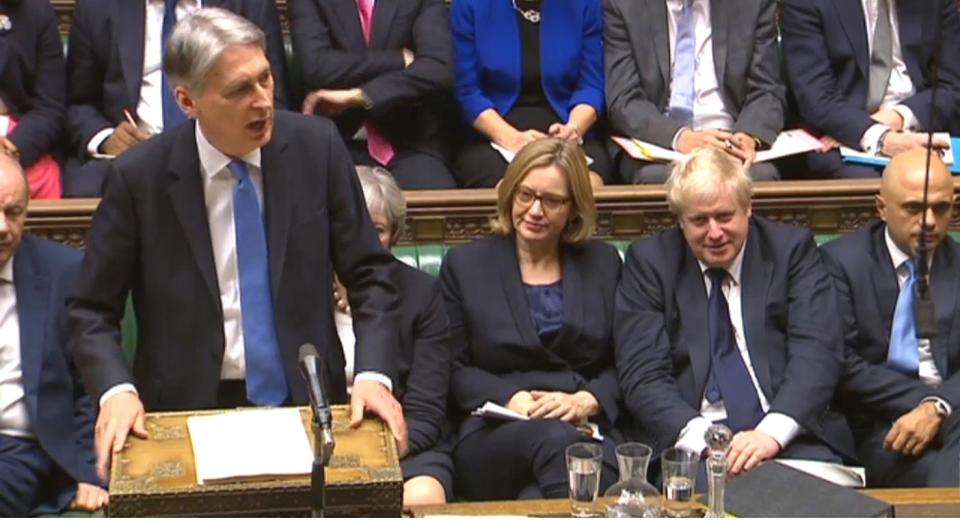Budget Live: Philip Hammond scraps stamp duty for first-time buyers

Welcome to Yahoo Finance UK’s live blog following the 2017 Budget. Chancellor Philip Hammond has presented his spending plans in an hour-long speech to Parliament.
– Stamp duty abolished for first-time buyers as Hammond pledges £44bn housing boost
– OBR predicts that stamp duty cut will actually push house prices up
– UK growth forecast downgraded from 2% to 1.5%, Hammond confirms
– Chancellor announces £3 billion over the next two years for ‘every possible Brexit outcome‘
– Duty on cigarettes to rise, pushing up prices by up to 6%
– £2.8bn NHS cash injection confirmed to ease the burden on health services
– Chancellor green-lights higher road tax for diesel cars to pay for ‘clean air fund’
– £28m pledged to help with Grenfell Tower aftermath
READ MORE: The key points from the 2017 Budget
Philip Hammond has said he will use the Budget to “invest to secure a bright future for Britain”, in a strong signal that he is ready to start bringing down the curtain on the age of austerity.
In his keynote statement this afternoon, Mr Hammond is expected to respond to intense pressure for Government spending to boost industrial productivity and ease the housing crisis, as he promises to build “a Britain fit for the future”.
On Tuesday night, the Treasury confirmed that the phrase ‘Fit for the Future’ would be a key message in getting across the key message of the Budget.
However, Mr Hammond’s room for manoeuvre has been limited by surprise figures showing that state borrowing jumped to £8 billion last month, adding to pressure from the Office for Budget Responsibility’s expected downgrade of productivity projections.
The director of the Institute for Fiscal Studies, Paul Johnson, said Mr Hammond was caught “between a rock and a hard place” and may be forced to abandon his target of balancing the nation’s books by the middle of the next decade.
Meanwhile, Labour was demanding large-scale investment in infrastructure to boost “sluggish” manufacturing industry, along with new cash for the public services, a major house-building programme and a pause in the Government’s flagship Universal Credit welfare reform.
As he finalised preparations for his second Budget statement, Mr Hammond sought to damp down expectation of a full-blown turn away from the austerity agenda which has dominated economic policy for seven years, insisting his package would be “balanced”.
But addressing MPs in the House of Commons, he will leave no doubt that increased investment is at the heart of his programme.
“In this Budget, we express our resolve to look forwards, to embrace change, to meet our challenges head on, and to seize the opportunities for Britain,” he is expected to say.
“Because for the first time in decades, Britain is genuinely at the forefront of a technological revolution, not just in our universities and research institutes, but this time in the commercial development labs of our great companies and on the factory floors and business parks across the land.
“So we must invest to secure a bright future for Britain, and at this Budget that is what we choose to do.”
In an apparent bid to shake off the “Eeyore” tag attached to him by Brexit-backing Tories frustrated by his cautious approach to EU withdrawal, Mr Hammond will paint an optimistic vision of a future “global Britain”.

